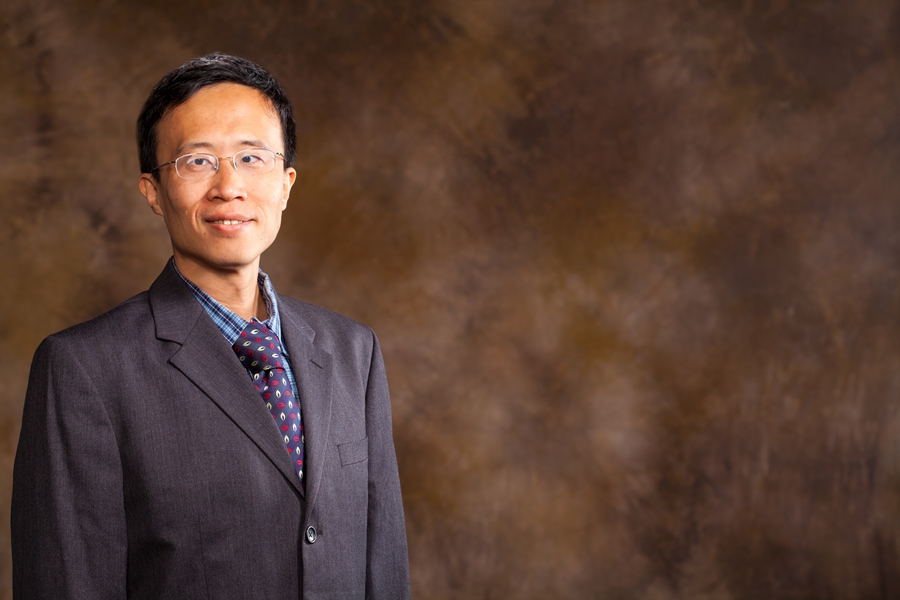Chemist Receives $1.5 Million Award From the National Institutes of Health
FAYETTEVILLE, Ark. – A new $1.5 million award from the National Institutes of Health will allow a University of Arkansas chemist to develop mathematical models to improve the reliability and efficiency of computer-aided drug design. The research could reduce the cost of drug discovery and lead to improvements in public health.
Computer-aided drug design is a critical component of drug discovery and the further development of more efficient, or targeted, pharmaceuticals. However, current models used in these designs have demonstrated limited accuracy in describing the interactions between drug molecules, their targets and their shared environment.
Feng Wang, associate professor of physical chemistry in the J. William Fulbright College of Arts and Sciences, has developed a new method for creating models that more accurately predict guest-host interactions and the binding affinities of proteins and ligands – molecules that attach to proteins to form a complex that regulates a biological function.
Wang’s method, called adaptive force matching, is an automated protocol that maps the complex landscape of molecular energy into simple mathematical forms.
“The significance of the proposed research is to enable predictive simulations of fundamental properties of drug candidates,” said Wang. “With adaptive force matching, we propose to shift the focus from creating a general-purpose force field to a rigorous protocol that will enable more efficient and accurate computational studies of the structure and function of drug candidates.”
One aim of the research is to create simulations to identify so-called nisin derivatives, the foundation for a class of drugs – generally referred to as lantibiotics – that hold great promise in addressing bacterial infections that are resistant to common antibiotics.
About the University of Arkansas: The University of Arkansas provides an internationally competitive education for undergraduate and graduate students in more than 200 academic programs. The university contributes new knowledge, economic development, basic and applied research, and creative activity while also providing service to academic and professional disciplines. The Carnegie Foundation classifies the University of Arkansas among only 2 percent of universities in America that have the highest level of research activity. U.S. News & World Report ranks the University of Arkansas among its top American public research universities. Founded in 1871, the University of Arkansas comprises 10 colleges and schools and maintains a low student-to-faculty ratio that promotes personal attention and close mentoring.
Contacts
Feng Wang, associate professor, Department of Chemistry and Biochemistry
J. William Fulbright College of Arts and Sciences
479-575-4801, fengwang@uark.edu
Matt McGowan, science and research communications officer
University Relations
479-575-4246,
dmcgowa@uark.edu
